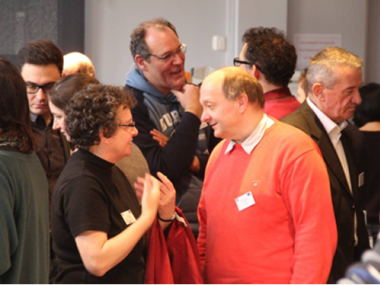Experience from Pilot Networks to Inform URBACT III
Edited on
05 February 2015Exploring how European cities can really maximise the benefits of their involvement in URBACT projects, URBACT kicked-off two new separate pilot Delivery and Transfer networks in Paris last month. The first supports cities as they implement integrated sustainable urban action plans, and the second focuses on sharing good practices in the same field.

Over the next fifteen months URBACT’s Delivery and Transfer pilot networks will examine how to exploit the wealth of experience gathered to date by URBACT. A key objective is to leverage experience – accrued by the many cities involved across all of the pilots - to inform URBACT III.
“With these pilots we want to amass the collective experience of all the participants,” explains Emmanuel Moulin, Head of URBACT Secretariat.
“At a programme level we want to have practical knowledge. What comes from the pilot networks, their experiences, what’s working, what’s not,” underlines Jenny Koutsomarkou, Capitalisation Officer at URBACT.
And importantly, “we really want to know if it helps the cities to talk and network with each other, share experiences, or just do it alone. This is the first time we’re doing Transfer and Delivery networks, ” says Sally Kneeshaw, URBACT Thematic Pole Manager.
Ultimately, as Sally underlines, URBACT is about ‘human capital’, with the pilot networks, like other URBACT networks, about developing the ‘skills of a lot of people running European cities.’
DELIVERY aims to identify processes for implementing LAPs
Cities involved in URBACT II thematic networks that have prepared their Local Action Plans (LAPs) with the support of the Local Support Groups, usually start implementing their action plans once their URBACT project is over.
But the aim of the three new pilot Delivery networks is to extend certain cities co-operation though URBACT into the (delivery) implementation phase of their projects. The challenge for the cities involved in these networks is how to maintain the sustainability and the integration (two main characteristics for URBACT action plans), through the implementation phase. Or otherwise said, how to make sure at all times that the actions taking place integrate the economic, social and environmental dimensions.
To make this happen, URBACT selected three projects among the previous thematic networks of the second call. In total, 17 cities are involved, with the projects devoted to workforce development (ESIMeC), electric vehicles (EVUE) and improving access to employment and services for working age Roma (ROMA-NeT).
Submitted by admin on
